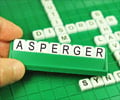Nearer, my Dog, to thee? - sounds odd? But it is a dyslexics mode of writing where letters in words are often reversed
'Nearer, my Dog, to thee?' - sounds odd? But it is a dyslexic's mode of writing where letters in words are often reversed.
The learning disability, dyslexia, has a genetic component, according to German researchers. And finding the causative gene could opens up ways for treatment.Dyslexia generally affects family groups. Scientists at the National Genome Research Network report that they have located the dyslexia gene, denoted as DCDC2, the presence of which makes a person five times more likely to develop the disorder.
The gene could disturb a person's brain development, the scientists report. People with dyslexia generally have difficulty remembering, recognizing, or reversing written letters, words and numbers. They tend to read backwards and maintain a poor handwriting. Reading and writing can also be a severe challenge.
In Germany, dyslexia affects five million people. Studies say 5 to 12 percent of school-age children are affected, with boys being the victims twice as often as girls.
Human genetics expert Johannes Schumacher, one of the researchers, said that the discovery of the gene would pave the way for finding treatment for the disorder. "The unusual thing is that it is one of the first illness genes at all to be found in the area of reading and writing disabilities. Through it, we could see that people who were very seriously affected by this reading and spelling disability could be significantly linked to genetic changes," he told German public broadcaster WDR.
The research team subjected 137 children and their parents to their study. They concluded that the gene in question is responsible for disturbing the fetal nerve cell movement during brain development.
Advertisement









